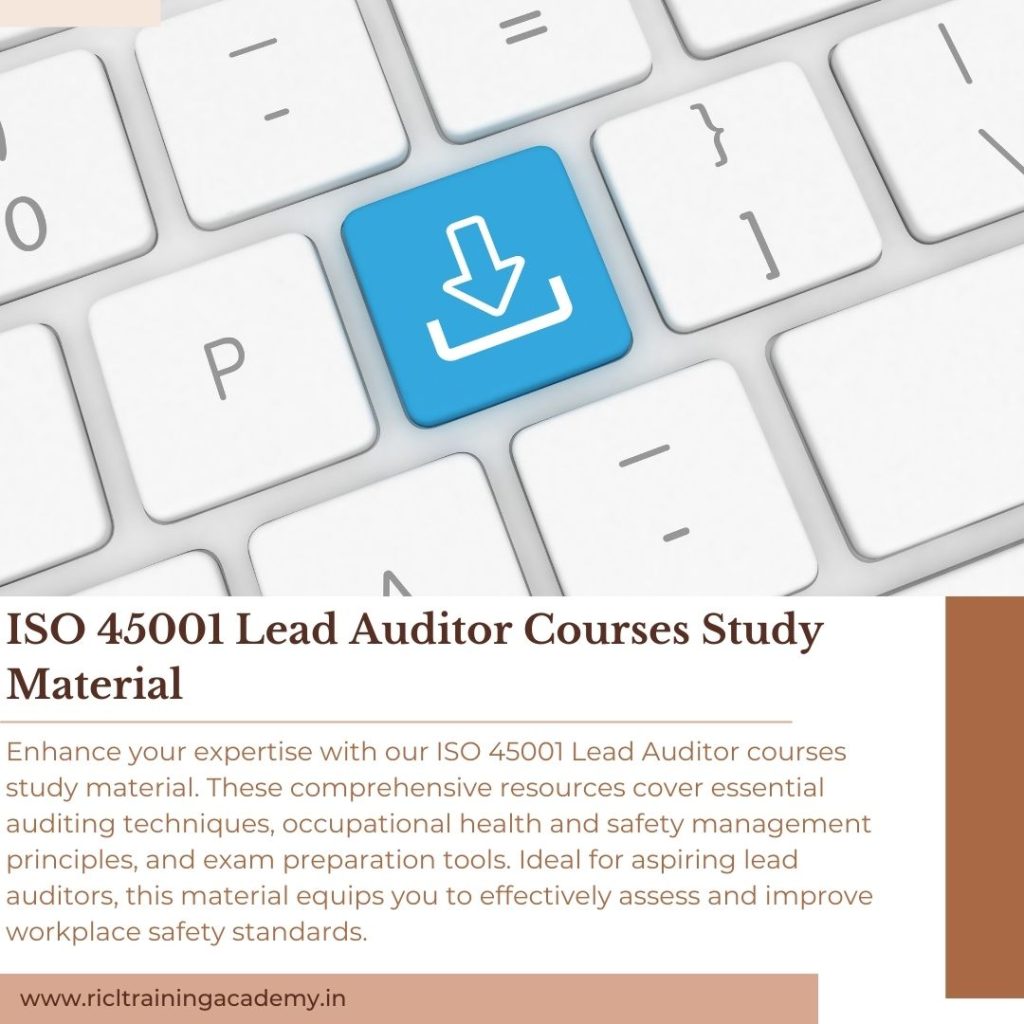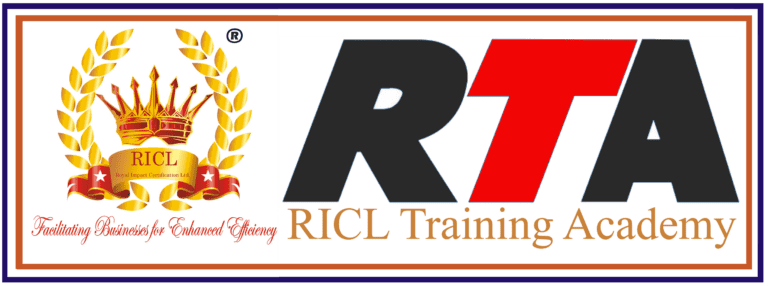Explore essential study materials for ISO 45001 Lead Auditor Courses. Prepare effectively for occupational health and safety management certification. ISO 45001 is an international standard that is supposed to provide an organization with a set of tools necessary for improving employee safety, reducing workplace hazards, and thus having better and safer conditions
ISO 45001 Lead Auditor Courses Essential Study Material

Introduction to ISO 45001 and Occupational Health and Safety Management Systems
ISO 45001 is an international standard that is supposed to provide an organization with a set of tools necessary for improving employee safety, reducing workplace hazards, and thus having better and safer conditions. This standard was published in March 2018 and forms part of the ISO 45000 family, where much emphasis has been paid to OH&S management systems. The primary objective of ISO 45001 is to offer a framework in which organizations will be directed on the best ways to protect their workforce and maintain a secure working environment. The understanding of this framework is one without which any lead auditor aspirant would be incomplete, as it is the very ground upon which auditing practice depends.
Role of ISO 45001 Lead Auditors
The lead auditors play a pivotal role in the implementation of ISO 45001 within an organization and in leading its performance to be maintained. It is their responsibility to plan, conduct, and report audits on the conformance of the organization with the requirements of health and safety, along with the ISO 45001 standard. In fact, being a lead auditor does not mean just checking for the presence of specific compliance. The work can actually be referred to as finding areas of improvement or fostering a culture of safety and health within the organization. Successful lead auditors contribute to reducing work incidents, enhancing the health of their workforce, and inspiring a positive occupational health and safety practice.
Key Principles of ISO 45001
In light of planning an effective Lead Auditor course, the following are the main principles that should be considered for ISO 45001. These form a ground upon which a healthy occupational health and safety management system can be built:
Worker participation and consultation: Identification of hazards and management of risk shall involve workers at all levels.
Leadership and commitment: Top management shall provide leadership and commitment to OH&S by allocating necessary resources and support.
Risk management: Identification, assessment, and if possible elimination of risks and opportunities regarding OH&S.
Continuous improvement: To reach the desired outcomes, organizations shall strive for continual improvement of their OH&S performance through an organized approach.
Evidence-Based Decision Making: Decisions on OH&S shall be informed by data and factual evidence so that they are effective and efficient.
Combining with Other Management Systems: ISO 45001 can be integrated with other management systems, such as ISO 9001 and ISO 14001, in order to contribute to an organization’s integrated management approach.
These principles form the basis for any lead auditor who wishes to operate in this field.
ISO 45001 Requirements
ISO 45001 is divided into several clauses, which expound on the particular requirements that the organization must meet for certification to ISO 45001. Knowledge of these clauses is considered a requirement for the lead auditor:
Scope: This outlines the applicability of the standard.
Normative References: specifies documents that would be necessary to understand and apply the standard
Terms and Definitions: It specifies the terminology that shall be used across the standard end to ensure the common understanding of the same.
Organizational Context: The organization should be knowledgeable about its internal and external issues and the needs of interested parties. Leadership and Participation of Workers: It is the responsibility of leadership to ensure a healthy and safe culture along with the participation of workers. Planning: The organization shall establish processes necessary for hazard identification, risk assessment, and determining OH&S objectives.
Support: This includes resources, skills, awareness, and communication necessary to develop and support the OH&S management system
Operation: Organizations must plan and control the processes to engage the efforts necessary to achieve an effective management of occupational health and safety
Performance Evaluation: It requires the organization to analyze and synthesize the performance of the OH&S management system through measuring and monitoring and its continuous analysis and required
Improvement: The organizations shall identify non-conformities and correct it with reasonable actions taken up for it that further improve the performance of their OH&S.
Understanding these needs will make sure there is good auditing, and the same is covered under the study document for a lead auditor course.
The Process of Audit Perform in ISO 45001
The process of audit is basically an examination process for an organization’s OH&S Management System, sincerely focusing on the conformity to the requirements within ISO 45001. The few identified key steps are:
Planning: There is a need for the auditor to plan how to perform an audit with an audit plan that specifies the objectives, scope, and criteria for the audit.
Preparation: This involves reading and familiarizing with appropriate documentation, such as the OH&S policy, procedures, and organization’s past audit reports.
Audit Performance: The auditors, in the performance stage use interviews, observations, and document reviews in a bid to obtain evidence related to compliance with the ISO 45001 standard.
Reporting: In this case, auditors prepare an audit report showing areas of conformance and rationale underpinning non-conformity/ areas of improvement.
Follow-Up: Organizations must address the nonconformities that their auditor has discovered and demonstrate what steps they have taken. The steps that they have taken can be verified in a “follow-up” audit.
The reasons above are why a potential lead auditor must be aware of this process. He or she must be able to audit to an absolute and effective conclusion to have all of these aspects of the program in place.
Core Knowledge and Skills and Abilities Required to Lead Auditor
For a learner to become an ISO 45001 Lead Auditor, he or she requires the following skills and competencies:
Analytical Skill: The ability to break a complex process into the simple parts and understand the potential hazards and risks that such a process may result in.
Communication: The ability to communicate well verbally and in writing is key when delivering findings and when liaising with staff.
Interpersonal Relations: Ability to foster good relations with personnel at all levels of operation during an audit.
Detail: High attention to detail so that non-conformances are identified and all aspects are fully audited.
Problem-solving: Ability to identify issues and follow through with pragmatic recommendations for improvement in workplace safety.
These skills are developed in combination by the theoretical study and practical experience during the entire training process.
Conclusion
The ISO 45001 Lead Auditor courses have study materials based on research an aspiring auditor is provided with knowledge and core skills necessary for auditors’ success in their related fields. This can be achieved not only by training delegates on how to apply these principles, requirements, and processes of audit in effective additions to organizational health and safety management, but also by ensuring that the lead auditor plays a critical part in compliance as another layer. This means that the lead auditor will guarantee a safe working environment, which directly translates into better performance because of better well-being. Due to constant study and practical application of these concepts, the aspiring lead auditors can contribute well to the occupational health and safety standards of an organization.
Lead Auditor & Internal Auditor Training: QMS, EMS, OHSMS + Awareness Courses
Refine your know-how in Quality Management Systems by taking our all-inclusive Lead Auditor QMS training course. We equip you with skills necessary for effective auditing as well as ensuring conformance with ISO standards. It is an excellent resource for people who want to become professionals in QMS auditing through detailed knowledge and practical information.”
Become a certified Lead Auditor in Environmental Management Systems with our specialized training course. This program offers necessary know-how and skills for conducting effective inspections while also promoting environmental compliance according to ISO regulations. The perfect opportunity for those looking to progress their career further into the realm of environmental management”
Pursue your career growth using our Lead Auditor OHSMS training course, which is tailored towards equipping you with the skills needed to undertake comprehensive evaluations of Occupational Health and Safety Management Systems. Obtain practical capabilities as well as experience that guarantee individual workplaces’ security conformity with the most recent ISO requirements”.
Our Internal Auditor QMS training can help you improve your auditing skills. This course covers the principles and practices necessary for conducting internal audits of Quality Management Systems. Ideal for professionals looking to increase their understanding of QMS and contribute to organizational excellence.
Our Internal Auditor EMS course will help you enhance your skills in environmental auditing. Learn techniques and standards needed to implement efficient internal audits of environmental management systems, ensuring ISO compliance and its environmental sustainability.
The purpose of our Internal Auditor OHSMS training is to equip you with the necessary skills to conduct effective internal audits. This course gives an extensive overview on how to audit Occupational Health & Safety Management Systems so that you can achieve compliance and create a safe workplace.
Hone your understanding of Quality Management Systems (QMS) through our Awareness Auditor QMS. These courses provide a basic understanding of the principles, benefits and implementation strategies of QMS making them instrumental for improving quality management practices by individuals or teams.
Familiarize yourself with essential knowledge regarding the Environmental Management Systems by exploring our Awareness Auditor EMS. The courses offer an overview of the principles of EMS which will help you comprehend environmental policies and procedures along with their importance in achieving sustainability targets.
Out training programs on Occupational Health and Safety Management Systems are meant to improve your awareness in this field. This course is intended for organizations and individuals, they provide essential information on OHSMS principles and practices that lead to safer and compliant work environments.
Other Blogs
- Adaptability Thrive in a Dynamic World
- Artistic Sense Elevate Expression & Drive Innovation
- Body Language A Key Form of Non-Verbal Communication
- Business Ethics: Upholding Integrity and Sustainability
- Business Etiquette Cultivating Professionalism and Success
- Business Trend Awareness Stay Ahead & Drive Success
- Collaboration Foster Synergy for Collective Success
- Competitiveness Driving Excellence & Superior Performance
- Conflict Resolution Navigate Tensions for Positive Results
- Crisis Management Strategic Response & Communication
- Critical Thinking Empower Strategic Decisions
- Customer Service Excellence: Fostering Relationships and Driving Success
- Customizing ISO Training for Different Industry Needs: A Tailored Approach
- Dealing with Difficult People Constructive Interaction Tips
- Decision Making: Strategies for Complex Environments
- Delegation Strategic Empowerment for Success
- Design Sense Inspire Creativity & Spark Innovation
- Diplomacy Navigate Relationships & Achieve Goals
- Disability Awareness Embracing Inclusion and Empowerment
- Dispute Resolution Foster Collaboration & Harmony
- Diversity Awareness Fostering Inclusion and Collaboration
- Empathy Enhance Understanding & Build Stronger Connections
- Entrepreneurial Thinking Cultivating Innovation and Initiative
- Facilitation Enhance Group Dynamics Effectively
- Feeling Stagnant in Your Career? Start Here
- Giving Feedback Bridging Performance Gaps Effectively
- Humor A Universal Aspect of Human Experience
- Inspiring Cultivate Authentic Leadership
- Interviewing Skills Effective Communication in Recruitment
- ISO 14001 Lead Auditor Courses PDF Download
- ISO 14001 Lead Auditor Courses Study Material
- ISO 14001: Environmental Management Training Essentials
- ISO 22301 Internal Auditor Courses Material Download
- ISO 22301 Lead Auditor Courses Fees
- ISO 22301 Lead Auditor Courses Material Download
- ISO 22301 Lead Auditor Courses PDF Download
- ISO 30000 Internal Auditor Courses Material Download
- ISO 37001 Lead Auditor Courses PDF Download
- ISO 37001 Lead Auditor Courses Study Material
- ISO 41001 Internal Auditor Courses Material Download
- ISO 41001 Lead Auditor Courses Material Download
- ISO 41001 Lead Auditor Courses PDF Download
- ISO 41001 Lead Auditor Courses Study Material
- ISO 45001 Internal Auditor Courses Material Download
- ISO 45001 Lead Auditor Courses Fees
- ISO 45001 Lead Auditor Courses Material Download
- ISO 45001 Lead Auditor Courses PDF Download
- ISO 45001 Lead Auditor Courses Study Material
- ISO 50001 Internal Auditor Courses Material Download
- ISO 50001 Lead Auditor Courses Fees
- ISO 50001 Lead Auditor Courses Material Download
- ISO 50001 Lead Auditor Courses PDF Download
- ISO 50001 Lead Auditor Courses Study Material
- ISO 50001 Energy Management Training for Sustainability
- ISO 9001 Certification A Comprehensive Training Guide
- ISO 9001 Internal Auditor Courses Material Download
- ISO 9001 Lead Auditor Certificate Course
- ISO 9001 Lead Auditor Certification in India
- ISO 9001 Lead Auditor Courses Benefits
- ISO 9001 Lead Auditor Courses Cost
- ISO 9001 Lead Auditor Courses Exam Question and Answers
- ISO 9001 Lead Auditor Courses Fees
- ISO 9001 Lead Auditor Courses Fees
- ISO 9001 Lead Auditor Courses Fees in Chennai,Noida,Delhi
- ISO 9001 Lead Auditor Courses PDF Download
- ISO 9001 Lead Auditor Courses Study Material
- ISO Certification in Delhi NCR
- ISO Certification in India
- ISO Certification in Noida
- ISO Full Form
- ISO Lead Auditor Training Near Noida
- ISO Training for New Employees: Onboarding and Integration Best Practices
- Latest ISO Training Courses & Certificates
- Lead Auditor Certification
- Lead Auditor Course
- Lead Auditor ISO 14001 Course
- Lead Auditor ISO 22000 Course
- Lead Auditor ISO 45001 Course
- Lead Auditor ISO 9001 Course
- Lead Auditor Online Courses
- Lead Auditor Salary
- Lead Auditor Training
- Lead Auditor Training Provider in Delhi
- Lead Auditor Training Provider in India
- Lead Auditor Training Provider in Noida
- Listening The Cornerstone of Effective Communication
- Adaptability Thrive in a Dynamic World
- Artistic Sense Elevate Expression & Drive Innovation
- Body Language A Key Form of Non-Verbal Communication
- Business Ethics: Upholding Integrity and Sustainability
- Business Etiquette Cultivating Professionalism and Success
- Business Trend Awareness Stay Ahead & Drive Success
- Collaboration Foster Synergy for Collective Success
- Competitiveness Driving Excellence & Superior Performance
- Conflict Resolution Navigate Tensions for Positive Results
- Crisis Management Strategic Response & Communication
- Critical Thinking Empower Strategic Decisions
- Customer Service Excellence: Fostering Relationships and Driving Success
- Customizing ISO Training for Different Industry Needs: A Tailored Approach
- Dealing with Difficult People Constructive Interaction Tips
- Decision Making: Strategies for Complex Environments
- Delegation Strategic Empowerment for Success
- Design Sense Inspire Creativity & Spark Innovation
- Diplomacy Navigate Relationships & Achieve Goals
- Disability Awareness Embracing Inclusion and Empowerment
- Dispute Resolution Foster Collaboration & Harmony
- Diversity Awareness Fostering Inclusion and Collaboration
- Empathy Enhance Understanding & Build Stronger Connections
- Entrepreneurial Thinking Cultivating Innovation and Initiative
- Facilitation Enhance Group Dynamics Effectively
- Feeling Stagnant in Your Career? Start Here
- Giving Feedback Bridging Performance Gaps Effectively
- Humor A Universal Aspect of Human Experience
- Inspiring Cultivate Authentic Leadership
- Interviewing Skills Effective Communication in Recruitment
- ISO 14001 Lead Auditor Courses PDF Download
- ISO 14001 Lead Auditor Courses Study Material
- ISO 14001: Environmental Management Training Essentials
- ISO 22301 Internal Auditor Courses Material Download
- ISO 22301 Lead Auditor Courses Fees
- ISO 22301 Lead Auditor Courses Material Download
- ISO 22301 Lead Auditor Courses PDF Download
- ISO 30000 Internal Auditor Courses Material Download
- ISO 37001 Lead Auditor Courses PDF Download
- ISO 37001 Lead Auditor Courses Study Material
- ISO 41001 Internal Auditor Courses Material Download
- ISO 41001 Lead Auditor Courses Material Download
- ISO 41001 Lead Auditor Courses PDF Download
- ISO 41001 Lead Auditor Courses Study Material
- ISO 45001 Internal Auditor Courses Material Download
- ISO 45001 Lead Auditor Courses Fees
- ISO 45001 Lead Auditor Courses Material Download
- ISO 45001 Lead Auditor Courses PDF Download
- ISO 45001 Lead Auditor Courses Study Material
- ISO 50001 Internal Auditor Courses Material Download
- ISO 50001 Lead Auditor Courses Fees
- ISO 50001 Lead Auditor Courses Material Download
- ISO 50001 Lead Auditor Courses PDF Download
- ISO 50001 Lead Auditor Courses Study Material
- ISO 50001 Energy Management Training for Sustainability
- ISO 9001 Certification A Comprehensive Training Guide
- ISO 9001 Internal Auditor Courses Material Download
- ISO 9001 Lead Auditor Certificate Course
- ISO 9001 Lead Auditor Certification in India
- ISO 9001 Lead Auditor Courses Benefits
- ISO 9001 Lead Auditor Courses Cost
- ISO 9001 Lead Auditor Courses Exam Question and Answers
- ISO 9001 Lead Auditor Courses Fees
- ISO 9001 Lead Auditor Courses Fees
- ISO 9001 Lead Auditor Courses Fees in Chennai,Noida,Delhi
- ISO 9001 Lead Auditor Courses PDF Download
- ISO 9001 Lead Auditor Courses Study Material
- ISO Certification in Delhi NCR
- ISO Certification in India
- ISO Certification in Noida
- ISO Full Form
- ISO Lead Auditor Training Near Noida
- ISO Training for New Employees: Onboarding and Integration Best Practices
- Latest ISO Training Courses & Certificates
- Lead Auditor Certification
- Lead Auditor Course
- Lead Auditor ISO 14001 Course
- Lead Auditor ISO 22000 Course
- Lead Auditor ISO 45001 Course
- Lead Auditor ISO 9001 Course
- Lead Auditor Online Courses
- Lead Auditor Salary
- Lead Auditor Training
- Lead Auditor Training Provider in Delhi
- Lead Auditor Training Provider in India
- Lead Auditor Training Provider in Noida
- Listening The Cornerstone of Effective Communication

TESTIMONIALS
What Our Cutomers are Saying About us

Ruis aute irure dolor in reprehender voluptate velit esse cillum dolore fugiat pariatur sint occaecat cupidata non proie sunt in culpa aui officede









Reach us at:
info@ricltrainingacademy.in
support@ricltrainingacademy.in
sales@ricltrainingacademy.in
complaint@ricltrainingacademy.in
Call us at:
9355650992
9355650993
Visit us at:
Royal Impact Certification Limited
623 Tower -B, The Ithum Sector – 62, Noida, 201301.
Copyright © 2024 RICL Training Academy Team


